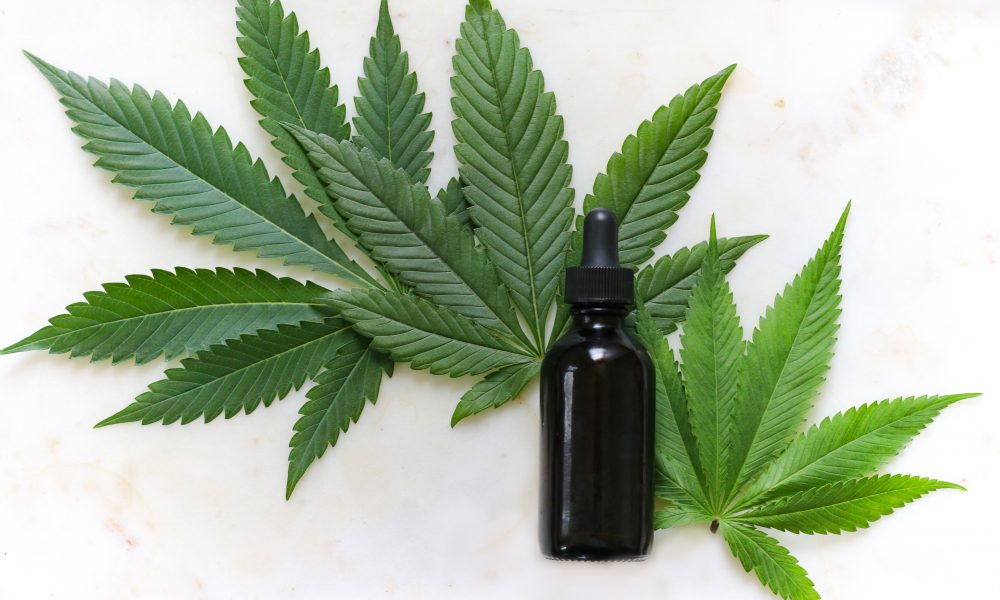The drug company behind the CBD-based medication Epidiolex has filed a lawsuit against more than a dozen competitors that are seeking to create generic versions, alleging patent infringement.
GW Research Ltd, which along with GW Pharmaceuticals is a subsidiary of Jazz Pharmaceuticals, filed the suit. GW, one of the only companies to secure Food and Drug Administration (FDA) approval for a cannabis-derived medication, says that the various competitors have submitted what are known as Abbreviated New Drug Applications (ANDAs) in order to “commercially market generic versions of GW’s cannabidiol oral solution drug product.”
The lawsuit, filed in the U.S. District Court for the District of New Jersey on Tuesday, says that the attempts to develop and market those generics is happening “prior to the expiration of one or more” of GW’s patents. It then listed 25 U.S. patents it owns.
The 322-page filing contains many pages of technical descriptions and claims about jurisdiction, but it eventually gets into its main arguments against each of the competing companies’ ANDAs. It asserts that the patents affiliated with its epilepsy medication Epidiolex that are listed in what’s known as FDA’s “Orange Book” for authorized drugs have not yet expired, so any companies that seek to market generics would be in violation of patent infringement laws.
“We believe Epidiolex is an important life-improving medicine for patients with rare epilepsies,” Andrew Civers-Davis, a spokesperson for GW parent company Jazz Pharmaceuticals, told Marijuana Moment. “We will vigorously defend our intellectual property rights, as this is an important part of what enables us to continue to innovate and develop new medicines for patients, including our pioneering work and industry-leading GW cannabinoid scientific platform.”
FDA’s website shows that Epidiolex received authorization for use in the treatment of two sets of conditions in 2018 and 2020. The exclusivity period for the first is set to expire in September 2025, while the other expires in July 2027.
GW is asking the federal court to enjoin each of the companies from moving forward with their FDA applications, lest they run into a patent infringement problem.
Larry Sandell, a registered patent attorney with Mei & Mark LLP and the head of the firm’s cannabis practice, told Marijuana Moment on Wednesday that ANDA patent cases like this are relatively common in the pharmaceutical world, even if it’s somewhat unique here because it involves cannabis products.
Sandell, whose firm is not involved in the GW dispute, said that in some cases such litigation can be in the best interest of all parties, as it would prove costly for generic competitors to expend resources to manufacture and market drugs that may ultimately be found to infringe valid pharmaceutical patents.
In the new complaint, after more than 100 largely repetitive sections of claims against the various companies, GW asks the court to grant injunctions to prevent possible patent infringement, judgments affirming that their existing patents are valid and enforceable and to award damages for any violations that may have already occurred.
The companies listed as defendants are the following: Teva Pharmaceuticals, Inc. Apotex Inc., Padagis US LLC, InvaGen Pharmaceuticals, Inc., Cipla Ltd., Cipla USA, Inc., API Pharma Tech LLC, Lupin Ltd., Alkem Laboratories Ltd., Taro Pharmaceutical Industries Ltd. , Ascent Pharmaceuticals, Inc., MSN Laboratories Private Ltd., MSN Pharmaceuticals, Inc., Zenara Pharma Private Ltd. and Biophore Pharma, Inc.
Marijuana Moment reached out to each of the companies for comment, but representatives did not respond by the time of publication.
GW is no stranger to patent law, and it’s previously found itself on the receiving end of a patent infringement lawsuit after being accused by the cannabis corporation Canopy Growth of unlawfully using patented extraction technology in 2020. That case was ultimately dismissed last year, with a joint stipulation from the companies that there was no such infringement per a judge’s interpretation.
Read GW’s cannabis patent lawsuit against the generic competitors below:
Photo courtesy of Kimzy Nanney.
Read the full article here









